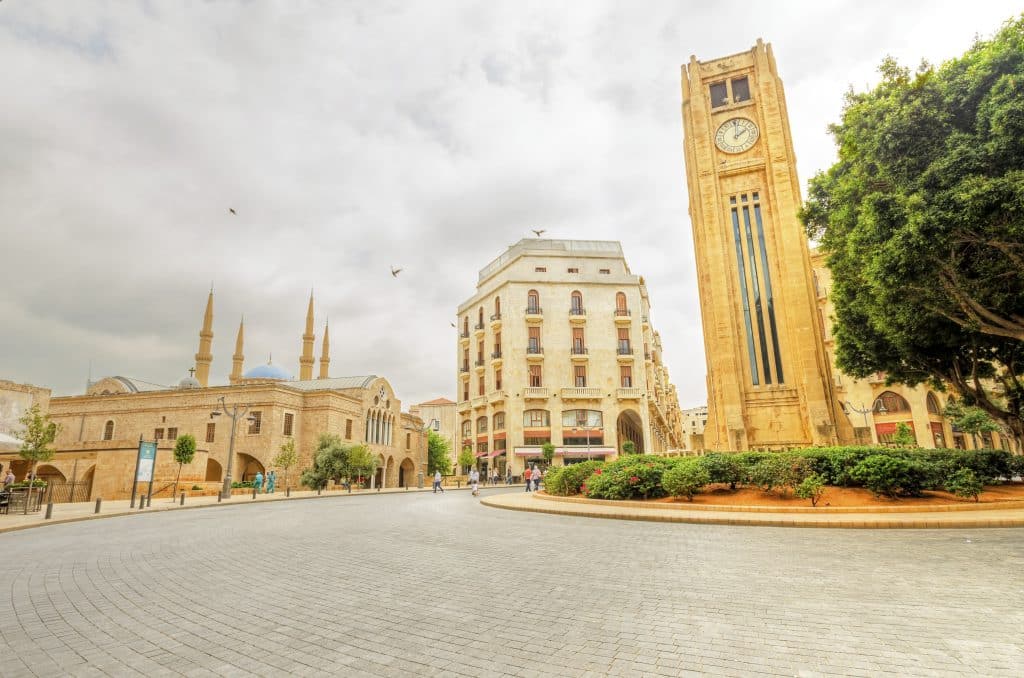Lebanese had to wait almost nine years for it, but this month they were finally allowed to go to the polls to elect a new parliament. Years of struggle, a presidential vacuum, a new electoral law and the prime minister's announced-but-not-executed departure preceded it. The outcome seemed certain, but still delivers some big surprises. Hezbollah and allies win the majority and Prime Minister Hariri's Future Movement (FM) takes a sharp hit: from 26 to 19 seats. All parties want a cabinet to be formed soon to tackle the sky-high national debt and boost the economy, but at the same time one blockade after another is being put up. The winners smell their opportunity to bring in more ministries.
The long road to elections
It took 45 rounds of voting for President Aoun, a Maronite Christian and founder of the Free Patriotic Movement (FPM), into the saddle. The end of the two-year stalemate paved the way for Hariri to follow in his father's footsteps. A new electoral system was rolled out. No longer would the sectarian distribution of seats be adhered to. 15 districts with a proportional system was to make politics more accessible to outsiders. However, care was taken to ensure that the division of districts coincided coincidentally with where different groups lived. In terms of size and shape, proverbial Frankensteins were created.
Last autumn, it was far from certain whether the polls would open on 6 May. In a dramatic speech, Hariri announced his resignation as prime minister. He was no longer sure of his life due to Hezbollah's growing influence and feared an assassination attempt. Not entirely coincidentally, it was broadcast live from Riyadh, Saudi Arabia, Hariri's biggest regional ally. Immediately it was rumoured that pressure from the geopolitical big brother had forced the prime minister to resign. The Saudis have in recent years watched with members' eyes as their influence in Lebanon waned, to the benefit of Hezbollah's mainstay, Iran. A hero's role was reserved for the French president, according to Macron himself. After intensive mediation and a transfer in Paris during Hariri's return to Beirut, the outcome was that no one left and the elections could go ahead as usual. Last week, Macron underlined his success. Asked whether his foreign policy had achieved anything, he stated that without France, Lebanon would be at war.
Surprising result and tough negotiations
Against expectations, there are notable changes in Lebanon's new parliament. Hezbollah and its Shiite ally, the Amal movement, win a little and now have a majority in the 128-seat parliament along with President Aoun's party. Hariri remains prime minister because his party is the largest Sunni player, but loses 7 seats. By contrast, the number of MPs from the Maronite Christian Lebanese Forces (LF), arch-rival of Hezbollah and therefore ally of Hariri. Also, more 'independents' are entering parliament, but they too are expected to position themselves: for or against Hezbollah. The neutral and secular Progressive Socialist Party, partner of the FMS, yields and drops to 9. It does manage to bring in a Sunni and a Maronite seat, despite its mainly Druze constituency.
President Aoun has ordered Hariri to quickly form a cabinet, but after initial consultations, negotiations are on edge. The win means Hezbollah is claiming more prominent portfolios and will use them as political signposts. Not technocrats, but seasoned top politicians are poised to join the cabinet. Besides, the two largest Maronite Christian parties (LF and FPM) are arguing over a balanced distribution of posts. The PSP and a small Druze party, the Lebanese Democratic Party, arguing over 'their' three ministers. Hariri himself, meanwhile, is left with less. The key ministries, Finance and Interior, are likely to be split between Amal and the FPM. Hezbollah also wants one of its minor Sunni allies to take over a ministry from Hariri's party.
Politics finally reflects reality
The elephant in the room is Hezbollah's disarmament. In recent years, the movement has greatly expanded its arsenal "to defend itself against Israeli aggression". The alliance between Hezbollah, Amal and the FPM is far from agreeing on everything, but remains united on this issue. As a result, the political landscape has evolved into either for or against the disarmament of the country's most powerful player, but none of the political leaders speak out openly about it. The alliance around Hezbollah remains on the winning side, tipping the balance. Iran's influence is growing and relations with the Assad regime are improving. This erodes Lebanon's status as a neutral player in the Middle East.
Hariri's new cabinet is bound to happen. The question remains how much ground he and Saudi Arabia are willing to give up. Provoking a new crisis will have little effect, given last autumn's fiasco. Whereas in 2009 there was still an anti-Hezbollah majority, the roles have now been reversed. Also, the hawks on both sides have won. The fighting cabinet that is about to emerge will finally reflect Hezbollah's strong position in Lebanese society. The first cashing in of gains for the Shiite movement is now in. Its ally Nabih Berri was re-elected parliamentary speaker on 23 May. Even though this is not really a surprise. Berri has held the post since 1992.
Curious about all the results? Take a look at: lebaneseelections.com
By: Jaron Liplijn, Project Manager FMS





